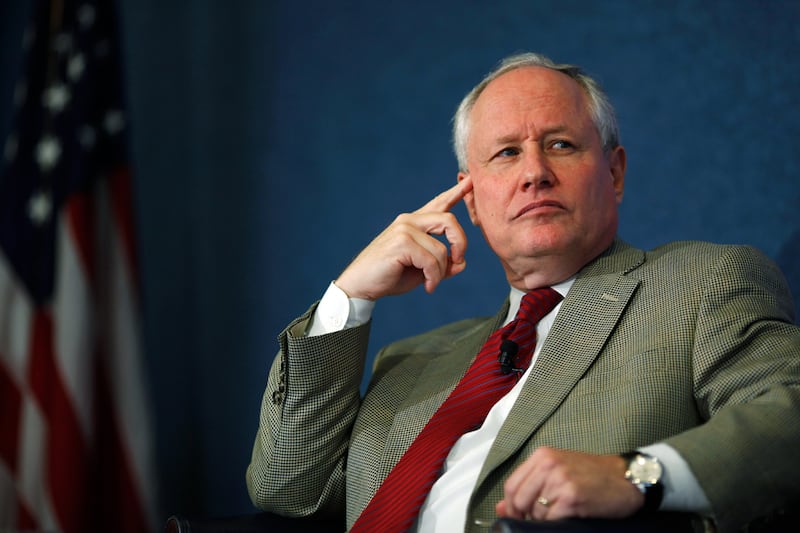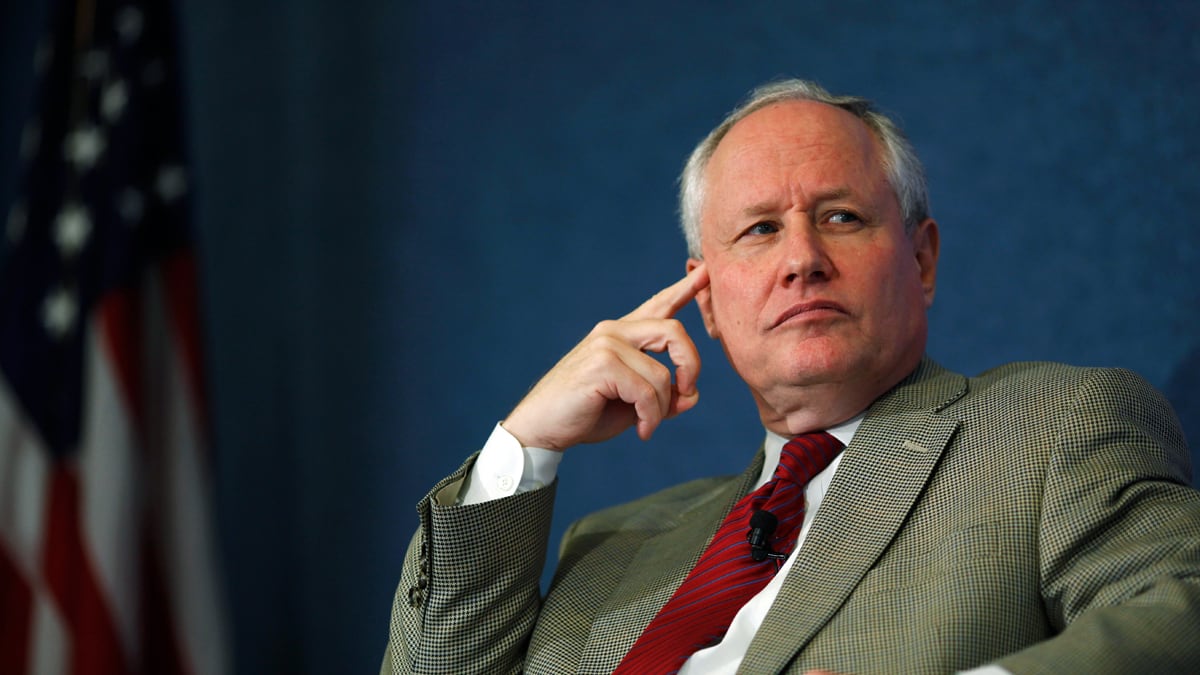The hawks' hopes for a filibuster of Chuck Hagel's nomination to be Defense Secretary seem to have risen and fallen in the same day. Yesterday, the Senate Republican leader Mitch McConnell said he wasn't above such a tactic, then vociferous Hagel inquisitor John McCain said he objected to and would oppose a filibuster—“I just do not believe a filibuster is appropriate, and I would oppose such a move,” he said—followed by a few other Republicans. That just about paves the way for an up or down vote in which Democratic support will almost certainly carry the day. It's worth starting to look now at just what, exactly, the battle was about.

This much is certain: the fight over Hagel was dominated by issues revolving around Israel. In the confirmation hearing before the Senate Armed Services Committee—which Hagel, at times, fumbled through—Jim Lobe counted up 178 mentions of Israel, more than any other country. Iran, often mentioned as a threat to Israel, got 171 shout-outs, coming in second. The anti-Israel militant groups Hezbollah (24) and Hamas (11) came in fifth and eleventh, respectively. Al Qaida, which Republicans had spent the Presidential election pumping up as a growing threat in the face of Obama administration complacency, got a mere two mentions—the same as Somalia, where Qaida-related militants are actively targeted by U.S. covert operations. But for all the focus on Israel, the main arms of America's pro-Israel lobby bowed out: the Anti-Defamation League (ADL) and American Jewish Committee expressed early concerns (if, respectively, overwrought and misleading ones), but then adopted the American Israeli Public Affairs Committee's (AIPAC) posture of not getting publicly involved. (Perhaps a disappointment to the anti-Zionist left, Hagel consistently voted for military aid to Israel, which is a constant at the top of AIPAC's priorities list for its Hill activism.)
The emptiness of discussing the "Israel lobby" as a generality seems to ring more and more hollow, as the conversation opens up everywhere but on Capitol Hill. While the main groups backed out and liberal pro-Israel organizations like J Street and Americans for Peace Now supported Hagel (along with the more centrist Israel Policy Forum), the Republican campaign was distinctly on the pro-Israel right-wing, sometimes the far-right. Leading the charge was the Bill Kristol-helmed Emergency Committee For Israel (ECI), which is still releasing ads against Hagel, though it can't expect anything but to lose Thursday's committee vote and, later, a wider Senate confirmation: Ted Cruz's McCarthyite second and third round objections were ripped straight from the neoconservative playbook, harping on an obscure bête noire of the pro-Israel right, a little-known former U.S. Ambassador named Chas Freeman. Others pressed Hagel on leaving "all options on the table on Iran" (which he's supported for years), while urging him to eschew the one option, containment, that worked against the Soviet Union and its thousands of nuclear missiles. The focus on attacking Iran again leads back to neoconservaties: ECI, this summer, ran an ad suggesting that the U.S. bomb Iran already.
But these themes took shape well before the hearing. From the moment his name was floated, that attacks were all about the Jewish state and its most aggressive Stateside supporters. Lindsay Graham led an obnoxious cross-examination ripped from the Weekly Standard's first salvo against Hagel, calling him an "anti-Semite" for saying that "the Jewish lobby intimidates a lot of people" in Congress. Hagel later said he misspoke when he said "Jewish lobby" (offering that he'd said "Israel lobby" elsewhere in the interview) and adding in his messy confirmation hearing that he should have said "influences" instead of intimidates. How ironic, then, that the Hagel confirmation saga seems to be bookended by another neoconservative rag—Commentary Magazine—making what one might sardonically describe as a call for the Jewish lobby to intimidate the Congress: "Can Jewish Groups Speak Out on Hagel?" Jonathan Tobin's headline asked. Come with me down the rabbit-hole! he seemed implore groups like AIPAC, the ADL and the AJC. "Republicans focused on Israel more than anything during his confirmation hearing," wrote the New York Times editorial board today, "but they weren’t seeking to understand his views. All they cared about was bullying him into a rigid position on Israel policy." Some might indeed call it "intimidation" by proxy.
Visit NBCNews.com for breaking news, world news, and news about the economy
But the pro-Israel right-wing seems, for the moment, to have failed. The Times editorial board lamented that "the political space for discussing Israel forthrightly is shrinking." But that space never really existed in Congress, as Hagel's "intimidation" remark suggested. Elsewhere—the opinion pages of the New York Times, for instance, or cable news shows like Chris Matthews's Hardball and Chris Hayes's Up—the conversation is opening up. No one but the squeakiest wheels among the Republican hawks takes ECI seriously, perhaps because of the group's serial, patent dishonesty. And those hawks, like ECI, are already pre-disposed to making war. Yet even one of those Three Amigos—McCain—asserted his independence in rejecting Bill Kristol and Jennifer Rubin's call for a filibuster. They may still be loud, but neocons are getting more and more isolated: standing apart from mainstream pro-Israel groups like AIPAC and even their old allies in Republican foreign policy-making like "Bud" McFarlane and former Reagan Secretary of State George Shultz. With Hagel likely to be confirmed, Michael Hirsh wrote in the National Journal today, "Now things are likely to get much worse for the hawks in the second Obama term." The neocons kept reiterating that Hagel was extreme, out of the mainstream, despite wide public support for his positions. Turns out it was all just projection.






